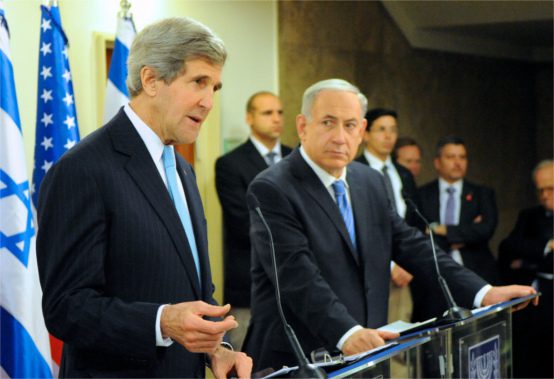The Absurd Idea of “No Daylight” in U.S.-Israel Relations

Michael Oren blames the U.S. for the state of relations with Israel:
But Mr. Obama posed an even more fundamental challenge by abandoning the two core principles of Israel’s alliance with America.
The first principle was “no daylight.” The U.S. and Israel always could disagree but never openly. Doing so would encourage common enemies and render Israel vulnerable.
The obvious rejoinder to this charge is that the U.S. has frequently disagreed openly with Israel over the decades. It can’t be a “core principle” of the relationship when it has been breached so often by so many different presidents. The so-called “principle” that Obama “abandoned” was no such thing, and insofar as past administrations followed this approach it didn’t benefit either country. On settlements in occupied territory, the U.S. and Israel have disagreed openly for almost forty years, and Israel has only become more secure over that same period. Not only is it impossible to hold to a “no daylight” standard in dealing with any other government, but it would not be desirable for either side even if it were possible. It’s even less desirable when the other government isn’t even really an ally of the U.S.
The only way to pretend that there is “no daylight” between the U.S. and one of its clients is to set U.S. policy according to whatever the client wants it to be. According to this view, a “failure” to conform to the client’s preferences introduces “daylight” when the U.S. chooses to pursues its own interests over the objections of the client government. On Iran, the client’s preferences also happened to be unreasonable and contrary to its own interests. The client government wanted to insist on impossible goals for the negotiations and was eager to condemn any diplomatic initiative that didn’t include its demands. The client government did this even though it had claimed many times that constraining Iran’s nuclear program was its top priority. As soon as there was a deal in sight that might do what the client had claimed to want more than anything, its leader went out of his way to try to sabotage the diplomacy that would make it possible. Fortunately for all concerned, he failed miserably, and now we’re being treated to revisionist tales that seek to pin the blame for the deterioration of relations on anyone except the leader of the government responsible for almost all of it.
Comments